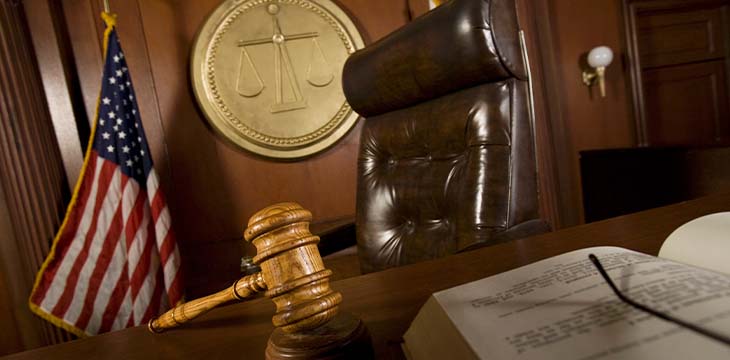|
Getting your Trinity Audio player ready...
|
A group of non-U.S. FTX customers has asked for their identities to be kept sealed during U.S. bankruptcy proceedings. This would go against the grain of regular bankruptcy cases, which typically reveal the names and identities of creditors in the name of public interest. The U.S. Justice Department is opposing the move.
The group says it’s owed $1.9 billion between its members, meaning they’re not small users. They claimed that revealing their names would leave them vulnerable to scams and identity theft. The group added that revealing their identities could negatively impact any efforts by FTX to sell off its businesses.
To support their argument, they pointed out the fact that digital asset holders are “particularly susceptible to fraud and theft because cryptocurrency is difficult to trace and there are fewer safeguards in place to protect the assets.”
FTX’s bankruptcy filing in Delaware revealed that it owes almost $3.1 billion to its top 50 unsecured creditors and that there may be over one million such creditors overall. “Unsecured” means the claims are not secured by any collateral.
Delaware bankruptcy judge John T. Dorsey, who is hearing the case, has previously served in the U.S. Army as a Military Police investigator. He also served in the U.S. Air Force as an ICBM launch officer. In a previous case two years ago, he allowed customers of digital asset lender Cred to remain sealed, with a ruling similar to FTX’s creditors’ — that Cred should be able to use the list to “market and sell the list” to sell the company in the future.
Why else would the creditor group want their identities kept secret? Their claims of exceptional vulnerability to hacks, scams, and identity theft are probably valid, but there could be other reasons too. To speculate, they might not want authorities in their jurisdictions to know about their holdings or business dealings. They might be embarrassed by their FTX exposure and be concerned about their reputations. They might also be concerned that third parties will investigate links between them and other digital asset industry businesses.
Digital assets, law, and privacy issues
Privacy surrounding digital asset holders’ identities following business collapses have long been an issue in the industry. A list of full names and account balances of Mt. Gox users was made public in 2014 after an anonymous hacker released a spreadsheet online.
The hackers in that case didn’t reveal any motive other than public interest and “responsible disclosure.” “It’s time that Mt. Gox got the bitcoin communities (sic) wrath instead of Bitcoin Community getting Goxed,” they wrote.
Clearly, others need to know exactly where and how much the contagion from FTX and other major digital asset fraud cases has spread. Not having this information made public could also have negative impacts on future investment and business decisions.
The group in FTX’s case does have a point: digital asset holders are more susceptible to scams, and assets can be difficult (but not impossible) to trace. Critics might point out that this is entirely the problem with the nature of blockchain and the industry’s frequent “code is law” cliches. The ease at which digital assets can be stolen and hidden has been a major barrier to adoption.
It’s one of the reasons Bitcoin creator Dr. Craig S. Wright has pointed out that having the private keys to Bitcoin UTXOs (Unspent Transaction Outputs) shouldn’t determine ownership and is also the basis for one of his current legal cases. Digital assets on blockchains are property like any other asset and should be treated as such, he has argued. Courts should have the authority to order miners to freeze UTXOs if coins are determined as stolen, and assets should be returned to those who can prove rightful ownership. Crypto protocol developers and many of their supporters have opposed him on this issue.
FTX’s creditors are another example of those in the digital asset world wanting legal protections against crime without the related disclosures and responsibilities applying to themselves.
Follow CoinGeek’s Crypto Crime Cartel series, which delves into the stream of groups—from BitMEX to Binance, Bitcoin.com, Blockstream, ShapeShift, Coinbase, Ripple,
Ethereum, FTX and Tether—who have co-opted the digital asset revolution and turned the industry into a minefield for naïve (and even experienced) players in the market.

 02-23-2026
02-23-2026 




